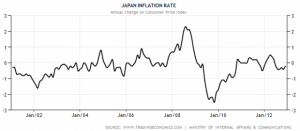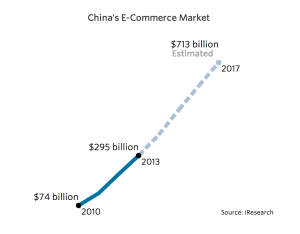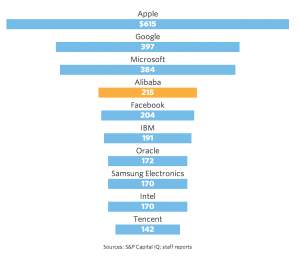The Bank of Japan wants to introduce a big quantitative easing program that consist of buying 80 trillion yen ($705 billion US) every year until their economy is no longer at risk of deflation. To put this in perspective, the estimate for the US quantitative easing program was $831 billion. A quantitative easing program is a program by the Central Bank of a country that buys government bonds that then increases the price of bonds and lowers interest rates. This allows people to borrow money at lower interest rates so they end up spending more money and the economy grows. Japan has struggled with deflation over the past couple of decades. The deflation rate is hovering around 0% inflation (see picture below). Having low inflation/deflation is bad for the economy because it discourages people from spending their money, thus slowing economic growth (If you want to know why inflation is bad click here). The Bank of Japan’s governor said, “The stimulus measures this time show the Banks of Japan’s unwavering determination to exit deflation.”
Although introducing the quantitative easing program will help inflation it could do more harm than good. Quantitative easing programs can depreciate a countries currency and with Japan getting most of their energy through imports this could drastically decrease their ability import. Japan is forced to import a lot of their energy due to the earthquake/tsunami that destroyed a lot of Japan’s biggest nuclear power plants.
“Big Bazookas.” The Economist., 8 Nov. 2014. Web. 10 Nov. 2014.
<http://www.economist.com/ news/leaders/
21631028-central-bank-right-be-bold-now-prime-minister-must-follow-suit-big-
bazookas?zid=306&ah=1b164dbd43b0cb27ba0d4c3b12a5e227>.


